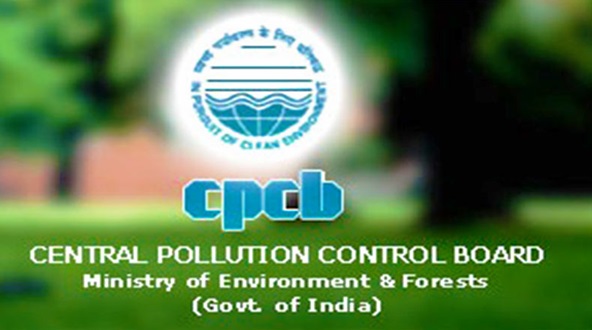
- A recent report submitted by the Central Pollution Control Board (CPCB) to the National Green Tribunal (NGT) revealed that 80% of the environmental compensation funds remain unutilized.
- This revelation has sparked a debate about the efficiency and accountability of India’s apex pollution control body in addressing environmental degradation.
Understanding Environmental Compensation Funds
Environmental funds are financial instruments aimed at mitigating the impacts of pollution and funding green projects. The CPCB receives these funds through two primary mechanisms:
Environment Protection Charge (EPC)
- What it is: A 1% surcharge imposed on the sale of new diesel vehicles registered in Delhi and NCR.
- Who orders it: Mandated by the Supreme Court of India.
- Purpose: To mitigate vehicular pollution, especially from diesel engines that emit high levels of NOx and PM2.5.
Environmental Compensation (EC)
- Based on: The Polluter Pays Principle (PPP).
- Ordered by: The National Green Tribunal (NGT).
- Imposed on: Industries, municipal bodies, and other entities that violate environmental norms.
About the Central Pollution Control Board (CPCB)
- Type – Statutory Body
- The CPCB is a statutory body, meaning it has been established through a specific Act of Parliament and has legally defined powers and responsibilities.
- Established under – Water (Prevention and Control of Pollution) Act, 1974
- It was constituted in 1974 under the Water (Prevention and Control of Pollution) Act, with the primary responsibility to monitor and prevent water pollution in India.
- Other Acts – Air (Prevention and Control of Pollution) Act, 1981
- Its mandate was expanded in 1981 under the Air (Prevention and Control of Pollution) Act to include regulation and monitoring of air pollution as well.
- Ministry – Ministry of Environment, Forest and Climate Change (MoEFCC)
- The CPCB operates under the administrative control of the Ministry of Environment, Forest and Climate Change (MoEFCC), which is the nodal ministry for environmental governance in India.
- Mandate – Monitor, prevent and control pollution of air and water across the country
- The core mandate of CPCB is to monitor environmental quality, prevent degradation, and control pollution of both air and water bodies across India through scientific studies, regulation, and enforcement.
Key Functions of CPCB
Regulatory Role
- Monitor compliance with air and water quality standards.
- Coordinate with State Pollution Control Boards (SPCBs) for enforcement.
Advisory Role
- Advise the Central Government on policies for pollution control.
- Recommend sustainable practices for industries.
Monitoring and Assessment
- Operates National Air Quality Monitoring Program (NAMP) and Water Quality Monitoring Network.
- Collects real-time data on key pollutants like PM2.5, SO₂, NO₂, etc.
Waste Management
- Formulates and enforces rules on Municipal Solid Waste, Plastic Waste, E-waste, and Hazardous Waste.
Research and Public Education
- Funds studies on emerging pollutants.
- Promotes awareness about clean technologies and environmental protection.
Crisis Response
- Provides technical support during gas leaks, chemical spills, and other environmental emergencies.
The Polluter Pays Principle (PPP)
- This internationally recognized principle asserts that those who cause pollution should bear the costs of managing it.
- The Polluter Pays Principle is a globally accepted environmental policy concept which states that the responsibility for paying for environmental damage lies with the party that caused it.
- In India, this principle forms the foundation for environmental compensation collected by CPCB and enforced by NGT.
- In the Indian context, this principle is used as the legal and moral basis for imposing fines and penalties on polluters.
- The Central Pollution Control Board (CPCB) collects environmental compensation under this principle, and it is legally enforced by the National Green Tribunal (NGT).
The Issue: Unutilized Environmental Funds
Findings from the CPCB Report:
- Over ₹800 crores collected under EPC and EC remain unused.
- Majority of these funds are intended for pollution abatement projects.
Implications:
- Lack of environmental project execution despite fund availability.
- Deterioration in air and water quality in several regions.
- Questions over CPCB’s administrative efficiency and transparency.
Key Challenges
|
Challenge
|
Description
|
|
Red Tape
|
Delay in approval and release of funds.
|
|
Lack of Planning
|
Absence of clear roadmaps for project implementation.
|
|
Poor Coordination
|
Between CPCB, SPCBs, and local bodies.
|
|
Public Unawareness
|
Citizens are unaware of their right to monitor fund utilization.
|
|
Weak Enforcement
|
Inadequate collection and follow-up of imposed fines.
|
Way Forward
|
Area
|
Action Needed
|
|
Fund Utilization
|
Fast-track project approvals; time-bound implementation; independent audits.
|
|
Transparency
|
Public dashboards and real-time tracking of fund inflows/outflows.
|
|
Capacity Building
|
Train CPCB and SPCB officials in financial and environmental project management.
|
|
Technology Use
|
Employ AI, GIS, and remote sensing for real-time monitoring.
|
|
Legal Compliance
|
Strengthen penalties for non-compliance and non-utilization of funds.
|
|
Public Engagement
|
Involve civil society in monitoring and awareness campaigns.
|
Legal and Constitutional Framework
- Water Act, 1974 – Establishes CPCB for water pollution control.
- This act provided the legal foundation for the formation of the Central Pollution Control Board (CPCB). Its primary purpose is to prevent, control, and abate water pollution in the country.
- Air Act, 1981 – Empowers CPCB to act on air pollution.
- Through this act, the CPCB was given the statutory responsibility to monitor and control air pollution across India, in addition to water.
- Environment Protection Act, 1986 – Provides broad powers for action against environmental threats.
- This act grants sweeping powers to the central government and CPCB to take measures for protecting and improving the environment, especially in cases of hazardous industries, pollution accidents, or ecological damage.
- National Green Tribunal (NGT) Act, 2010 – Enables judicial oversight and directions to CPCB for EC collection.
- The NGT Act created the National Green Tribunal, which has the power to supervise and direct CPCB in matters related to environmental compensation (EC) and enforcement of the Polluter Pays Principle.